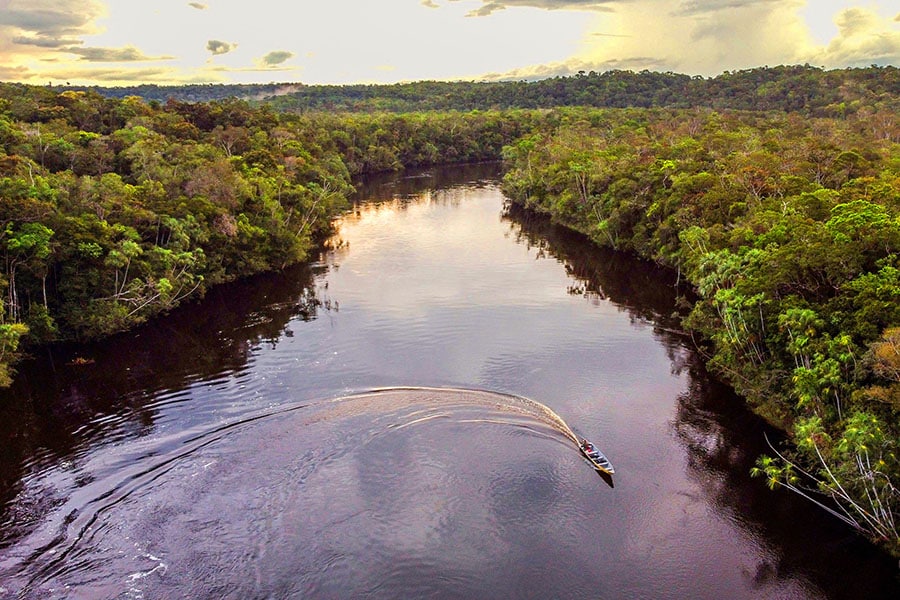
Amazon community fights carbon credit project
The Paris Agreement that emerged from COP21 in 2015 widened a system of exchange of carbon credits—something the oil and gas industry had been demanding for years
 Aerial view of the Pira Parana River, Vaupes province, Colombia
Image: Juan Pablo Pino / AFP
Aerial view of the Pira Parana River, Vaupes province, Colombia
Image: Juan Pablo Pino / AFP
Chewing on psychoactive coca leaves in a traditional ritual, Colombian Indigenous leader Fabio Valencia seeks the advice of jungle spirits and ancestors about a project sold to his community as a planet-saving initiative.
In a remote corner of the Amazon, far from COP28 in Dubai where world leaders will thrash out the final parameters for a reform of the global carbon credit system, the 43-year-old told AFP that one such project was destroying his people in the region of Pira Parana.
Carbon credits allow companies to buy carbon credits from forest preservation or other projects to offset or "compensate" for their greenhouse gas emissions.
But according to Valencia, the Baka Rokarire project in Pira Parana was "worse" for the community than even pollution from mining and oil extraction.
It threatened the very fiber of the community, he claimed, fraudulently wresting control from the region's Indigenous leadership and driving a wedge between locals who support the project with its quick cash injection, and those against it.







